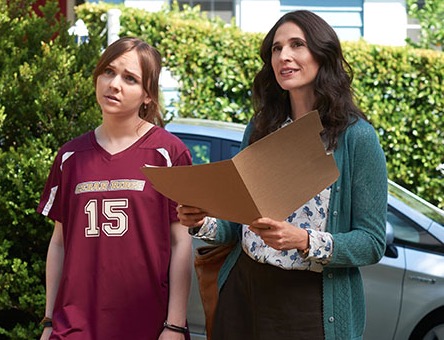Golden Globes Seek to Shine Light on Newcomers

The smarter way to stay on top of broadcasting and cable industry. Sign up below
You are now subscribed
Your newsletter sign-up was successful
For the TV world, the Golden Globes once felt like Emmy’s boozy cousin. The awards show came at an odd time of year and they were voted upon by an obscure group of journalists called the Hollywood Foreign Press Association.
But times have changed.
In the past six years, the Golden Globes have embraced their oddball status and wisely bet on the industry and viewing public’s bottomless appetite for glamor and self-congratulation. In 2010, they hired Ricky Gervais to host, and let the occasionally acerbic comic do his thing, even if that included insulting the front row of A-list stars.
When Gervais wanted a break, the Globes turned to comedy darlings Tina Fey and Amy Poehler to host, and those two held the podium from 2013 to 2015, with fans wondering at the end of every ceremony why the duo wasn’t hosting the Oscars and the Emmys as well. Of course, it didn’t hurt that the Golden Globes airs on NBC, where Gervais’ sitcom, The Office, aired, as well as Fey’s 30 Rock and Poehler’s Parks and Recreation. Gervais is back to host again this year, with the show airing Sunday, Jan. 10, at 8 p.m. ET/5 p.m. PT on NBC.
While the hosts got edgier, so did the nominations. Today, the Golden Globes, which considers all the shows that aired in the prior calendar year—and in 2015 there were 409 scripted series, according to FX—is an arbiter of TV’s cutting edge. Netflix, instead of regular Emmy-leader HBO, led the field with eight total nominations, followed by HBO with seven and Starz with six.
The Golden Globes were the first to honor a comedy that airs on a streaming service, with Amazon’s Transparent last year winning both best comedy and best actor. This year, the HFPA is leading again, giving Hulu its first major awards nomination for Casual, a comedy about a newly divorced single woman living with her brother.
“We were hoping to do something that would help brand Hulu,” says Casual creator Zander Lehmann, who adds he had “less than a 1% expectation that the show would be nominated. Hulu is a newer place that attracts a young audience and doesn’t have the track record of the other streaming services, but it wants to be in the same business as Netflix, Amazon and HBO with its premium content.”
The smarter way to stay on top of broadcasting and cable industry. Sign up below
The HFPA’s desire to be edgy is evident in all of the TV categories. The only broadcast series to break through in either drama or comedy is Fox’s Empire. All other nominated shows, except USA’s Mr. Robot, air on subscription-based services: HBO’s Game of Thrones, Veep and Silicon Valley; Amazon’s Transparent and Mozart in the Jungle; Netflix’s Narcos and Orange Is the New Black; Hulu’s Casual and Starz’ Outlander.
“I don’t think awards like the Golden Globes are a big marketing acquisition tool for us…but they certainly don’t hurt,” says Starz CEO Chris Albrecht. “I think they are brand-burnishing. It lets the creative community know if they come to Starz, they can do great work and get recognized for it.”
The limited series and acting categories are a little more open to the broadcast networks, with ABC and PBS scoring nominations for American Crime and Wolf Hall in the limited-series category. Nearly all of the comedy actresses come from broadcast, with notably Rachel Bloom and Gina Rodriguez nominated for The CW’s Crazy Ex-Girlfriend and Jane the Virgin, and Jamie Lee Curtis nominated for Fox’s Scream Queens. And Emmy winner and Emmy nominee Viola Davis and Taraji B. Henson were both nominated for ABC’s How to Get Away With Murder and Empire, respectively.
Even so, it’s increasingly hard to be a broadcast network in a premium world. With so many hours to fill and so many shows to shepherd, it’s no easy feat to polish a diamond in the rough as networks with lighter original schedules such as AMC, HBO and FX—or no schedules at all like the streaming services—get to do.
Globes’ host NBC is shut out this year, and that fact can’t be lost on the network. Whether Emmy follows the Globes out to the edge remains to be seen, but it’s clear the broadcast networks have some catching up to do.
Contributing editor Paige Albiniak has been covering the business of television for more than 25 years. She is a longtime contributor to Next TV, Broadcasting + Cable and Multichannel News. She concurrently serves as editorial director for The Global Entertainment Marketing Academy of Arts & Sciences (G.E.M.A.). She has written for such publications as TVNewsCheck, The New York Post, Variety, CBS Watch and more. Albiniak was B+C’s Los Angeles bureau chief from September 2002 to 2004, and an associate editor covering Congress and lobbying for the magazine in Washington, D.C., from January 1997 - September 2002.

